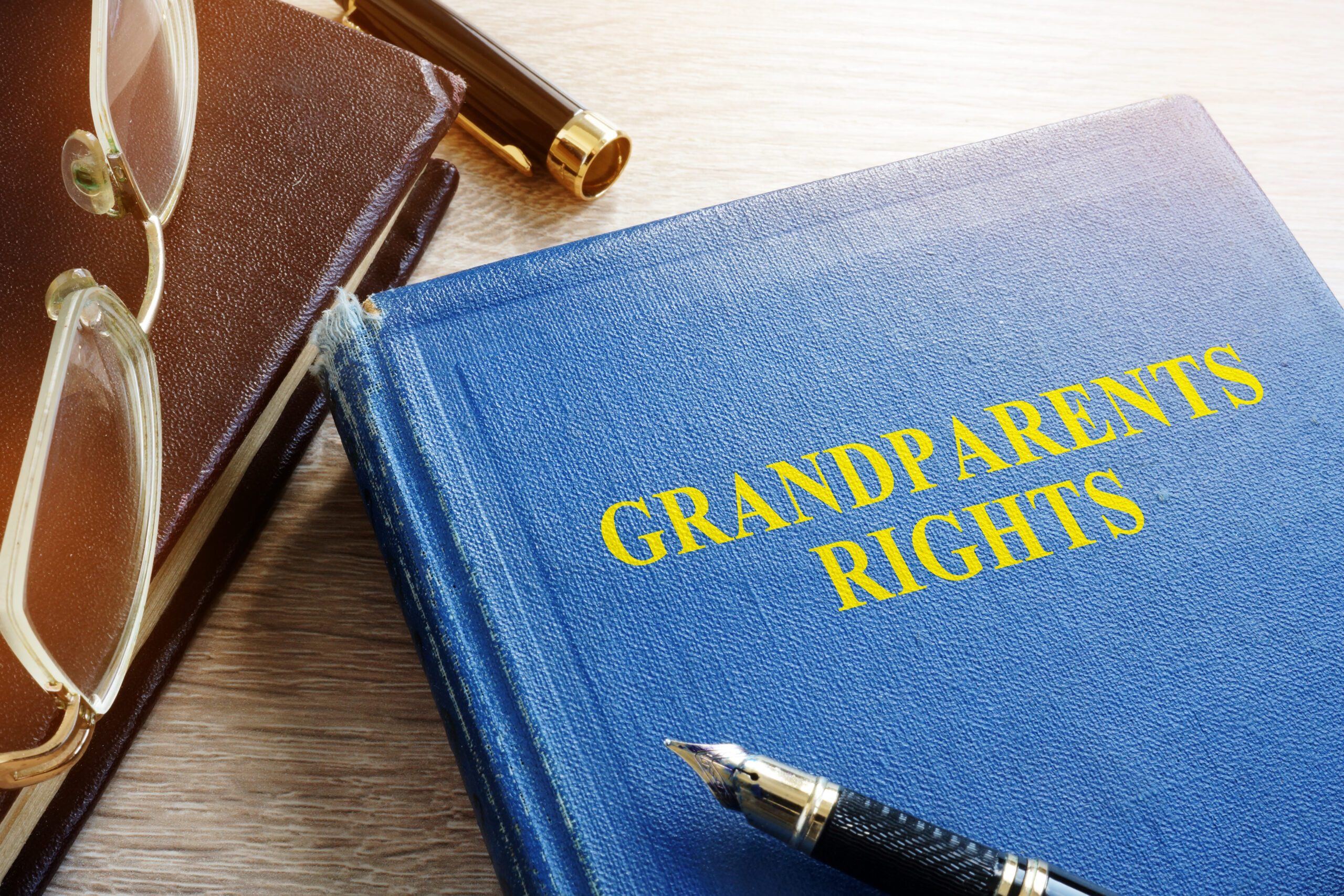Discover grandparents' legal rights in the UK and how to maintain contact with grandchildren.
Quick Answer to Do Grandparents have rights in the UK: Grandparents don't have automatic legal rights to see their grandchildren in the UK. However, they can apply for a Child Arrangements Order through the courts, though they must first gain permission to do so. The child's welfare is paramount in all decisions. Mediation and informal arrangements are often encouraged before legal action.
Key Takeaways:
• Grandparents have no automatic legal rights to see grandchildren in the UK.
• Child Arrangements Orders can be sought, but permission from the court is needed first.
• The child's best interests are always the top priority in any legal decisions.
Legal Status of Grandparents' Rights in the UK
In the UK, the legal standing of grandparents' rights is a complex and often misunderstood topic. Contrary to what many might believe, grandparents do not have automatic legal rights to see their grandchildren under current UK law. This situation affects a staggering number of grandparents each year, with roughly 1 million grandparents in the UK impacted by separation or divorce as of 2021.
The Children Act 1989 plays a crucial role in shaping grandparents' rights. This law puts the child's welfare at the heart of all decisions. While it doesn't specifically mention grandparents, it does provide a framework for them to seek contact with their grandchildren.
Do grandparents have automatic rights to see their grandchildren?
The short answer is no. In the UK, grandparents don't have automatic legal rights to contact with their grandchildren. This might seem unfair, but there's a reason behind it. UK family law focuses on parental responsibility. The law aims to strike a balance between protecting family life from unnecessary interference and allowing intervention when it's best for the child. Though grandparents do not have to seek parental responsibility to spend time with their children, as it is often considered in the child’s best interests to spend time with their wider family network. Although this, of course, depends on the specific circumstances of the case.
The Children Act 1989 and its implications for grandparents
The Children Act 1989 is a key piece of legislation for family law in the UK. While it doesn't directly address grandparents' rights, it does provide a way for them to apply for contact through Child Arrangements Orders. These orders can set out who a child lives with and who they spend time with.
The good news for grandparents is that when they do apply for these orders, they're often successful. About 80% of grandparents' applications for contact orders are approved. However, they must first get permission from the court to make the application, which can be a hurdle.
Impact of divorce or separation on grandparents' access
Divorce or separation can seriously affect grandparents' access to their grandchildren. With about half of all UK divorces involving children, this is a widespread issue. Grandparents might lose contact if the parent they're related to loses custody or moves away.
This loss of contact can be heartbreaking for both grandparents and grandchildren. Studies show that maintaining these relationships can be vital for children's emotional well-being and sense of family identity.
Differences between England, Wales, Scotland, and Northern Ireland
While the general principle of no automatic rights for grandparents is the same across the UK, there are some differences in how each nation handles these cases:
- In England and Wales, grandparents must seek permission from the court before applying for a contact order.
- In Scotland, grandparents can apply directly for a contact order without first seeking the court's permission.
- Northern Ireland follows a similar process to England and Wales.
These differences reflect the separate legal systems in each nation, but the focus on the child's best interests remains constant throughout the UK.

Options for Maintaining Contact with Grandchildren
When it comes to keeping in touch with grandchildren, grandparents have several options. It's best to start with friendly chats before thinking about legal steps. Let's look at some ways to sort things out:
Informal arrangements with parents
Having a calm chat with the parents is often the best first move. Try to find a quiet time when everyone's relaxed. Be open about your feelings and listen to theirs too. It might help to:
- Suggest regular visiting times
- Offer to help with childcare
- Plan fun activities together
Remember, these chats aren't legally binding, but they can really help keep the peace in the family.
Mediation: A non-legal approach
If talking directly doesn't work, mediation could be the answer. In fact, it works well about 70% of the time! A trained mediator helps everyone find a solution together. In England and Wales, you often need to try this before going to court.
Mediation usually costs between £100 to £150 for each meeting. It's not free, but it's cheaper than going to court and can help keep relationships friendly.
Family counselling and support services
Sometimes, a bit of extra help can make all the difference. Family Lives and Grandparents Plus are great places to start. They offer:
- Advice on handling tricky situations
- Support groups where you can chat with other grandparents
- Help with understanding your rights
Some of these services are free, and others you might need to pay for. Your local council or GP might know about free services in your area.
Negotiation through solicitors
If things are really tough, you might need a solicitor's help. They can chat with the parents' solicitors to try and sort things out. This can be handy if you're not getting anywhere by talking directly.
.
Collaborative law approach
This is a bit like mediation, but with lawyers involved. Everyone agrees not to go to court and instead works together to find a solution. You'll each have your own lawyer, and sometimes other experts join in too.
It can take a few months and cost a fair bit, but it's often quicker and cheaper than going to court. Plus, it helps keep things friendly, which is great for the kids.
Legal routes for grandparents
If nothing else works, you might need to think about going to court. In England and Wales, you'll need to ask the court's permission first before you can apply for a Child Arrangements Order.
About 2,000 grandparents in the UK take this step each year. It's not easy, but many find it's worth it to see their grandkids.
Remember, the court always puts the children first. They'll look at what's best for the little ones, not just what the adults want.
Applying for a Child Arrangements Order
When grandparents need to take legal action to see their grandchildren, a Child Arrangements Order is often the way forward. This process can be costly and time-consuming, with court fees starting at £255. The whole process can take several months, or even over a year in more complex casescomplex cases.
What is a Child Arrangements Order?
A Child Arrangements Order is a legal document that sets out who a child should live with and spend time with. It replaced Contact Orders and Residence Orders in 2014. These orders can spell out specific details like when and where visits happen. In 2020, about 40,000 of these orders were granted in the UK.
Step-by-step process for grandparents
- Fill out the C100 form
- Attend a Mediation Information and Assessment Meeting (MIAM)
- Apply to the court
- Attend court hearings
During this process, CAFCASS (Children and Family Court Advisory and Support Service) might get involved to look out for the child's interests.
Requirements for grandparents to apply
Grandparents usually need to get the court's permission before they can apply for an order. This is called 'leave of the court'. The court looks at things like why you're applying and how close you are to the child. Good news is, about 75% of grandparents get this permission.
Seeking leave (permission) from the court
To get permission, you'll need to fill out a C2 form. You might need to show photos or letters to prove your relationship with your grandchild. The court usually decides within 4-6 weeks whether to let you apply.
Factors considered by the court
Courts think about lots of things when making decisions:
- What the child wants (if they're old enough to say)
- The child's needs
- How changes might affect the child
The child's welfare is always the most important thing.
Best interests of the child principle
This principle is at the heart of all decisions. Courts look at the child's physical and emotional wellbeing, how stable their life is, and what they need to grow and develop properly.
Existing relationship between grandparents and grandchildren
If you can show you've had a good relationship with your grandchild in the past, it can really help your case. Photos, letters, or statements from other people can all be useful evidence.
Parents' objections and reasons
Sometimes, parents might not want grandparents to have contact. The court listens to their reasons but doesn't always agree with them. They try to balance any worries against the good things about having grandparents in a child's life.
Potential outcomes of a court application
The court might order:
- Direct contact (face-to-face visits)
- Indirect contact (like phone calls or letters)
- No contact (but this is rare)
About 80% of grandparents' applications result in some form of contact being allowed.
Enforcement of Child Arrangements Orders
If someone doesn't follow the order, you can ask the court to enforce it. The court can fine people, make them do unpaid work, or even change where the child lives in extreme cases. But remember, going back to court costs money and takes time.
Special Circumstances and Challenges
Grandparents' rights in the UK can get a bit tricky in certain situations. Let's look at some special cases that might pop up.
When a parent is not on the child's birth certificate
If your child isn't listed on your grandchild's birth certificate, this can cause difficulty. This affects their parental responsibility, which in turn impacts your rights as a grandparent. In the UK, about half of all children are born outside of marriage or civil partnerships, so this isn't uncommon. If this is your situation, your child might need to add their name to the birth certificate first.
Grandparents' rights in adoption cases
When adoption is on the cards, grandparents can step up. You can ask to be considered as alternative carers. There's also something called Special Guardianship that might work for you. Each year, about 3,500 children are adopted in the UK, and some of these involve relatives.
Dealing with uncooperative parents
Sometimes, parents just won't play ball. If that's the case, you might need to look into a Specific Issue Order or a Prohibited Steps Order. Keep a record of all your attempts to make contact and any agreements made. This can be dead useful if you end up in court.
Grandparents' rights in cases of parental alienation
Parental alienation is when one parent tries to turn a child against the other parent or family members. It's an extremely complex issue , but there is now a greater understanding within the legal system of the issues that such behaviour can cause. . If you think this is happening, document everything. Courts take this seriously when looking at contact arrangements.
International aspects: grandchildren living abroad
If your grandkids are living in another country, it gets a bit more complicated. There are international laws, like the Hague Convention, that might come into play. Look into international mediation services or seek the immediate advice of a solicitor specialising in cross-jurisdictional arrangements, if you find yourself in this situation.
Rights of step-grandparents and non-biological grandparents
Step-grandparents and non-biological grandparents, you're not forgotten! Courts recognise that families come in all shapes and sizes these days. While you might not have automatic rights, you can still apply for contact. The court will look at your relationship with the child.
Grandparents seeking custody or special guardianship
Sometimes, grandparents need to step in as primary carers. This is called kinship care, and it's more common than you might think. About 200,000 children in the UK are in kinship care arrangements. If you're considering this, be prepared for a thorough assessment by social services. But don't worry, there's support available if you do become a carer.
Remember, in all these cases, the child's best interests are always the top priority. It might seem like a long road, but many grandparents successfully navigate these challenges to maintain relationships with their grandchildren.
Support and Resources for Grandparents
When you're fighting for your rights as a grandparent, it's easy to feel alone. But don't worry, there's plenty of help out there. Let's look at some of the support and resources available to you in the UK.
Grandparents' support organisations in the UK
There are several brilliant organisations ready to lend a hand. Grandparents Plus offers advice and support through their helpline and online resources. Family Lives provides a listening ear and practical tips for family issues. The Grandparents' Association runs support groups across the country where you can meet others in similar situations.
These groups can be a lifeline, offering everything from a friendly chat to legal advice. Don't be shy about reaching out - they're there to help!
Legal aid and financial assistance options
Legal costs can be a worry, but there's help available. Legal aid might be an option if you meet certain criteria. If not, some solicitors offer free initial consultations or fixed-fee services. You could also look into crowdfunding or pro bono legal services.
Don't forget to check if you're eligible for court fee reductions too. Every little helps when you're dealing with legal costs.
Emotional support during the legal process
Going through legal battles can be tough on your mental health. It's important to look after yourself. The NHS offers counselling services, or you might prefer a private therapist who specialises in family issues.
Support groups can be a great source of comfort too. Sharing your experiences with others who understand can make a world of difference.
Preparing for court appearances
If you end up in court, being prepared can help calm your nerves. Gather all relevant documents and organise them clearly. Dress smartly but comfortably. Remember to speak clearly and calmly when giving evidence.
It's natural to feel nervous, but remember - you're there for your grandchildren. Focus on that, and it'll help you through.
Maintaining relationships during legal proceedings
Try to keep things civil with family members, even if it's difficult. Clear, calm communication can help reduce conflict. Always keep the focus on what's best for the children.
Be careful with social media too. It's best to avoid posting about your case online.
Coping strategies for limited or no contact
If you're currently not seeing your grandchildren, it's tough. But there are ways to cope. Keep indirect contact where possible - send cards, letters, or small gifts. Join a support group for grandparents in similar situations.
Remember, this situation isn't permanent. Keep hope alive and focus on the future.
Working with solicitors specialising in grandparents' rights
Finding a solicitor who understands grandparents' rights can make a big difference. Look for someone with experience in this area. Ask about their success rates and approach to these cases.
Prepare for meetings by writing down your questions in advance. Don't be afraid to ask about costs and timelines upfront. A good solicitor will be happy to explain everything clearly. At Zeus family law we have extensive experience helping grandparents to secure the best outcomes and visitation rights for their grandchildren, get in contact with us for an intitial consultation here.
Frequently Asked Questions
Question 1: Can grandparents apply for custody of their grandchildren?
Answer: Yes, grandparents can apply for custody, known as a Child Arrangements Order. However, they must first seek the court's permission to make the application.
Question 2: What's the cost of going to court for grandparents' rights?
Answer: Court fees start at £255,. Some grandparents may be eligible for legal aid to help with costs.
Question 3: How long does the legal process typically take?
Answer: The process can take several months, or even over a year in complex cases. It depends on factors like court availability and the specifics of your situation.
Question 4: Are there any alternatives to going to court?
Answer: Absolutely! Mediation is a popular alternative, with about 70% success rate. Family counselling and collaborative law approaches are also worth considering.
Question 5: What if my grandchild lives abroad?
Answer: International cases can be tricky. Look into the Hague Convention and consider international mediation services. It's best to seek advice from a solicitor experienced in international family law.






